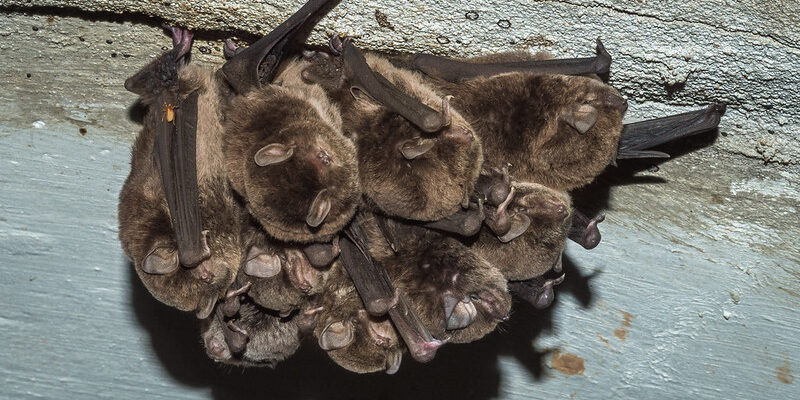Within the United States, alone, there are more than 40 species of bats. Although we know a lot of information about these flying mammals, some may ask, “do bats spread viruses?” In short, yes. Bats can carry rabies, but also Ebola, Nipah, Hendra, Marburg and Coronavirus. Bats are truly the ideal hosts for viruses. But why is this the case and why is it so dangerous to humans?
Bats Carry A Wide Range of Viruses
Bats can carry viruses that can transfer to other animals and humans. These types of viruses are known as “zoonotic” viruses. Bats are one of the top carriers of this class of virus – hosting over 60 different viruses. As modern development overlap bat habitats, humans increase their risk of contact with these mammals and the potential of spreading zoonotic viruses. It is essential to also note that for many of the viruses that bats carry do not have a cure or vaccine. Consequently, doctors can only offer infected patients supportive treatment until their body naturally fights off the virus.
Why Bats Are Not Affected By Viruses
So why aren’t these potentially lethal viruses killing the bats that host them? Some scientists believe that this may be due to their ability to take flight. Since flying takes an extreme amount of energy and a lot of waste is produced at this time, bats have evolved an intricate defense mechanism, which helps protect them from experiencing symptoms of the viruses or ultimately dying from it. Humans, however, do not have this same defense. Instead, their immune system will have an “over-response” to the virus, which can trigger a threatening illness.
How To Prevent Contracting A Virus From Bats
So what can we do to prevent these bat-to-human infections? The fact that bats spread viruses and always will, means that these viruses will continue to mutate. In saying so, there is no way scientists could create cures for all of these harmful, ever-growing pathogens. The best they can do is continue doing research about identifying factors that lead to bats coming into contact with other species and humans, as well as spreading the importance of keeping distance from bats and the harm that they can do to humans – which can sometimes be fatal.
What To Do If You Have Bats In Your Home?
First and foremost, because bats spread viruses easily, never try to catch or touch a bat if you see one in or around your home. This will reduce your chances of virus exposure or infection. The seasoned professionals at Varmint Gone have years of experience in handling bat removal and decontamination of infectious agents in your home. Be aware that many companies do not offer decontamination along with their bat removal services. Varmint Gone can help to keep you and your family safe. To schedule an inspection, call us at 888-391-3330 or fill out our online inspection request form.
Checkout Our Reviews Online at Varmint Gone Matthews or Varmint Gone Cornelius
Photo and video credit: healthcareinamerica.us







